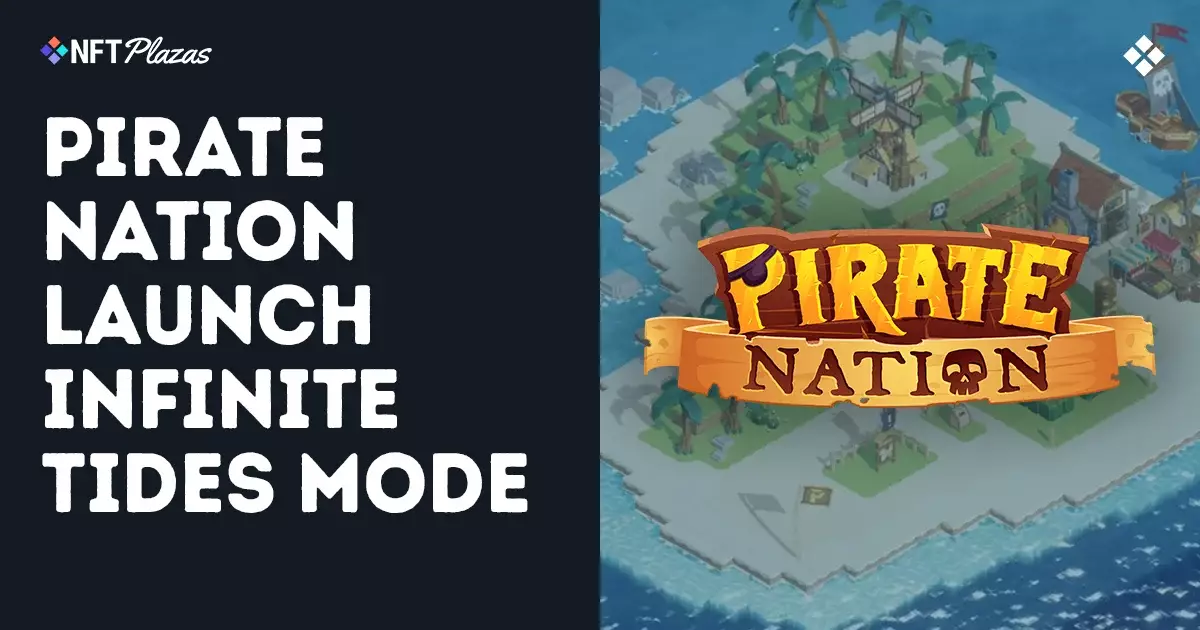In an era where the convergence of blockchain technology and gaming is reshaping entertainment, Pirate Nation has boldly stepped into the spotlight with its latest addition: the Infinite Tides mode. This innovative PvE experience cleverly marries roguelite mechanics with turn-based strategy, expanding the horizons for both traditional gamers and crypto enthusiasts alike. As the lines between these two communities blur, the excitement surrounding Infinite Tides is palpable, and it serves as a harbinger of what future developments might bring. However, upon closer inspection, the experience also reveals areas where Pirate Nation, like many in the burgeoning NFT arena, may still need to sharpen its focus.
Striking Balance in Gameplay Mechanics
At the core of Infinite Tides lies a thrilling challenge: 25 waves of progressively tougher foes and a singular ship at your command. Unlike many games where players can amass resources and gear to become virtually unstoppable, this setup demands strategic foresight and adaptability. Each wave presents its own unique challenges, and with health persisting across encounters, players must be tactical about their post-wave rewards. This inherently elevates the stakes and adds a layer of intensity that could captivate players for hours on end.
However, this design can also lead to frustration. The very nature of roguelite gameplay—where failure often serves as a teacher—can be alienating for casual participants. The risk of spending significant time only to be thwarted by an unforeseen enemy is daunting. While some players revel in this challenge, the importance of making the game accessible to a broader audience cannot be overstated. Purely catering to seasoned strategists might limit the growth of the player base that Pirate Nation desperately needs to thrive.
The Allure of Exclusive Rewards and Competitive Spirit
Pirate Nation’s timed reward system offers a compelling reason for players to engage with the mode: the limited-edition Hanzo the Samurai skin. Not only does it provide a personalized touch to a player’s character, but it also fosters a competitive spirit among participants. The fact that this skin is available for a limited window enhances its desirability, motivating players not just to play but to excel. The introduction of leaderboards in future updates further incentivizes gamers to refine their strategies and climb the ranks.
Nevertheless, this competitive edge should not overshadow the primary essence of gaming, which is enjoyment. Focusing solely on obtaining exclusive rewards can inadvertently create an environment steeped in anxiety rather than engagement. Striking a delicate balance between competition and camaraderie should be a priority moving forward, as casual players may feel alienated as hardcore players dominate.
The Importance of Community Engagement
A thriving online game thrives on community interaction. Pirate Nation, with its unique on-chain RPG format, has an opportunity to cultivate a vibrant player community, but it must do so strategically. The option for players to join factions presents a great avenue for alliances and player-driven interactions, but merely offering various factions isn’t enough. What truly fosters engagement is an ongoing dialogue between developers and players, where feedback shapes the game’s evolution, resulting in a mutually beneficial relationship.
As gameplay evolves, consistent community events or challenges that incentivize cooperation rather than mere competition could help reduce barriers between different player types within the community. While Pirates may see themselves as lone wolves, those who share their journeys create stories worth telling, enriching the ecosystem of the game.
Technological Integration and Future Prospects
Built on the Arbitrum blockchain, Pirate Nation’s commitment to using NFT technology is apparent. It promises increased transparency and ownership, features that are alluring in the current digital landscape. However, as with any revolutionary approach, technical hiccups could disrupt gameplay and undermine the experience. A stable, user-friendly interface is paramount; this must be prioritized alongside game development.
The future of Infinite Tides will depend on how well the architects of this universe can adapt to player feedback, technological innovations, and industry trends. Blockchain-backed games are here to stay, and Pirate Nation has a unique chance to shape its legacy within this burgeoning realm—if it can navigate the challenges effectively.
By harnessing the essence of strategic combat, community engagement, and ongoing innovation, Infinite Tides could indeed be a beacon amid the murky waters of NFT gaming. However, the success of this venture will rest heavily on the ability of its creators to listen, iterate, and grow alongside their player community, emphasizing fun over frustration.


Leave a Reply